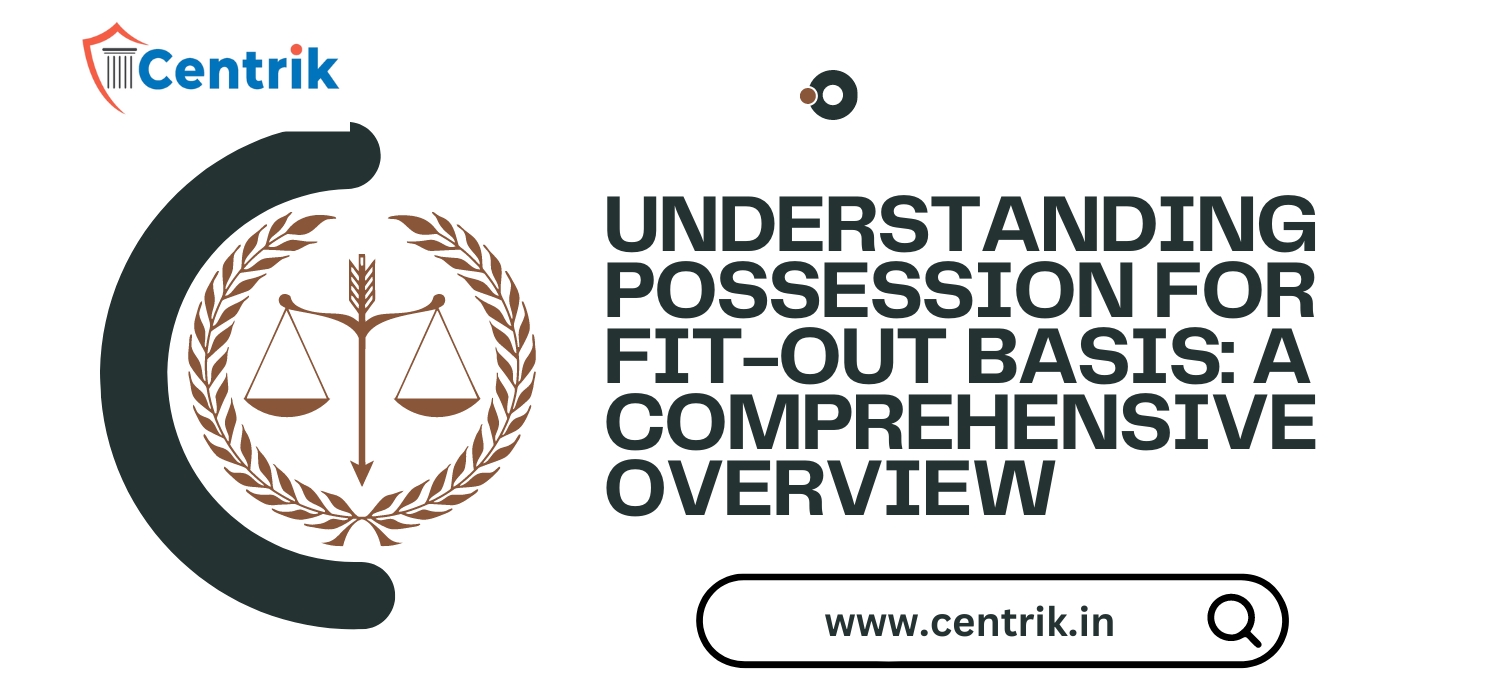Possession for fit-out basis is a term that has gained significant traction in the real estate sector, particularly in burgeoning urban areas like Noida. This concept allows property buyers to take early possession of their units to carry out interior design and finishing work, even before the formal completion and occupancy certificates are issued by the authorities. While this practice offers several advantages, it also comes with its own set of legal and practical considerations that buyers must carefully navigate.

What is Possession for Fit-Out Basis?
In simple terms, possession for fit-out basis means that a builder hands over a property to the buyer before the project has received its final completion or occupancy certificate. This interim possession allows the buyer to start internal work such as painting, installing fixtures, cabinetry, and other customizations required to make the space habitable or operational.
Advantages of Fit-Out Possession
- Early Access for Customization: Buyers can immediately start personalizing their new property according to their tastes and requirements, which can be particularly advantageous for commercial spaces that need specific interior setups.
- Time Efficiency: It allows for parallel processing where interior work is completed while the builder works on obtaining the necessary certificates. This can significantly reduce the overall time taken to make the property ready for occupancy.
- Financial Planning: For commercial buyers, this can mean quicker readiness for business operations, potentially leading to earlier revenue generation. For residential buyers, it can help in planning the move-in date more efficiently.
Legal and Practical Considerations
Despite the benefits, possession for fit-out basis must be approached with caution. There are several legal and practical aspects that buyers need to consider:
- Builder-Buyer Agreement: The specifics of fit-out possession should be clearly outlined in the builder-buyer agreement. This includes the nature of possession, the scope of work allowed during the fit-out period, and the responsibilities of both parties.
- Completion and Occupancy Certificates: Buyers must understand that final possession and the right to legally occupy the unit are contingent upon the issuance of these certificates. The completion certificate verifies that the construction is complete according to the approved plan, while the occupancy certificate confirms that the building is safe to occupy.
- Regulatory Compliance: The practice must adhere to local regulations set by the municipal or development authorities. Any deviation can result in legal complications for both the builder and the buyer.
- Risks Involved: There are inherent risks, such as potential delays in obtaining the final certificates, which could prolong the period during which the unit cannot be legally occupied. Additionally, any non-compliance or legal issues on the part of the builder can adversely affect the buyer.
- RERA Compliance: Under the Real Estate (Regulation and Development) Act, 2016 (RERA), builders are required to register their projects and meet specific obligations to buyers. Buyers should verify the project’s RERA registration and ensure that the builder is compliant with all regulatory requirements.
Best Practices for Buyers
To mitigate risks and ensure a smooth process, buyers should:
- Consult Legal Experts: Seek advice from a legal expert to thoroughly understand the terms and implications of fit-out possession.
- Verify Progress: Regularly check the progress of the project and the builder’s efforts towards obtaining the necessary certificates.
- Check Approvals: Ensure that all necessary approvals from local authorities are in place and that the builder has fulfilled all contractual obligations.
Conclusion
Possession for fit-out basis is a pragmatic approach that can offer significant advantages to both residential and commercial property buyers. However, it is essential to proceed with due diligence, ensuring all legal and regulatory requirements are met. By understanding the concept and carefully considering the associated risks, buyers can make informed decisions that align with their needs and protect their interests.




 join For Updates
join For Updates